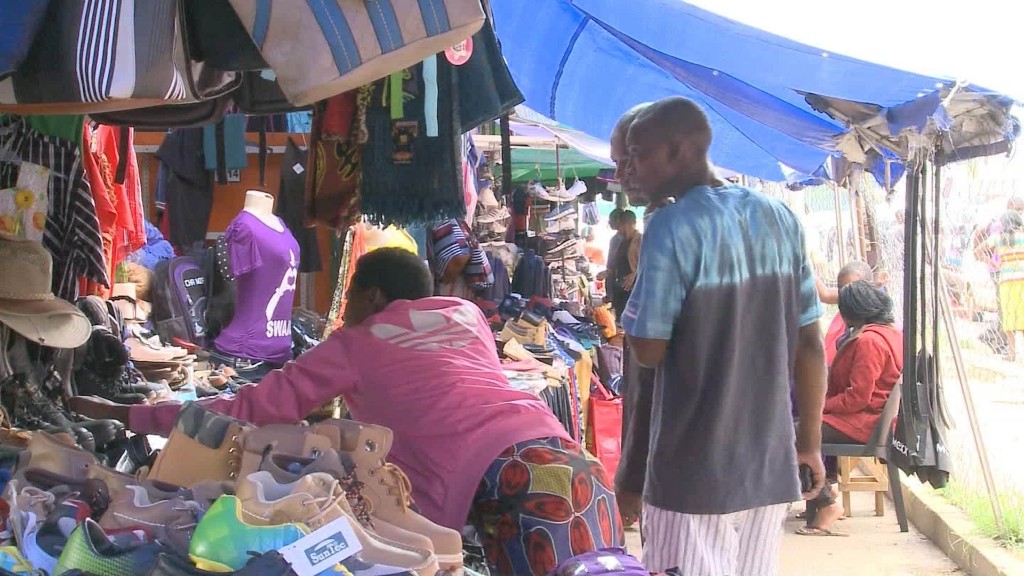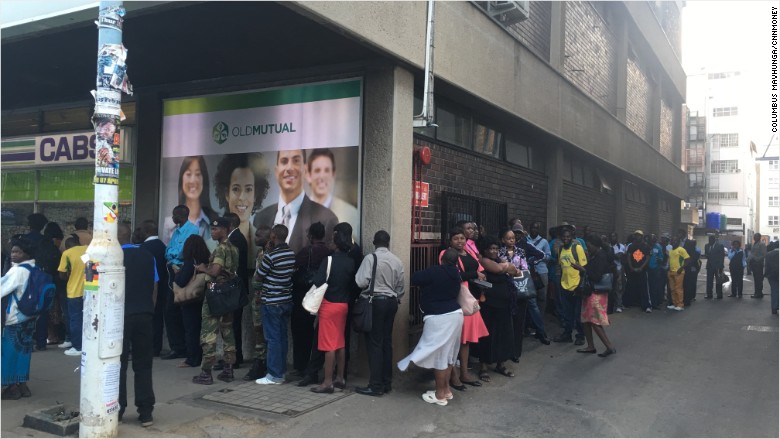
Zimbabwe's banks are running out of cash, forcing the country to start printing its own version of the U.S. dollar.
The southern African country has been using a mix of different foreign currencies -- and most importantly U.S. dollars -- since its own currency collapsed in 2009 during a period of hyperinflation.
Dollars have been in short supply for months, but the squeeze has intensified in the past few weeks. A slump in global commodity prices and a severe drought is hurting exports, meaning the country is earning fewer dollars abroad.
Bank runs have become commonplace and some banks are turning customers away as they simply don't have enough cash in their vaults.

In an effort to ease the acute cash shortages, Zimbabwe's central bank said it would start printing "bond notes" in denominations of $2, $5, $10 and $20. The country already has "bond" coins that represent U.S. dollar values. For each coin in circulation, there's an equivalent U.S. dollar held in the country's reserves.
The central bank has also limited withdrawals to $1,000 a day, and wants people to make more use of euros and South African rand. But the rand has lost 20% against the dollar in the past year, and some Zimbabweans are losing patience.
In the capital city Harare, one woman standing in line for the bank told CNNMoney that she was disappointed with all the government's "tricks."
"[I've] been queuing for cash for three days. It's painful," she said.
Related: Why Zimbabwe shut down its diamond mines
Eddie Cross, an economist and member of parliament for Zimbabwe's opposition party, accused the ruling party of making matters worse by withdrawing money from the central bank reserves and issuing "IOUs" in return. This has ultimately drained money from the system, he said.
"An immediate collapse of our banking system is now threatened and, with it, what is left of our economy," he wrote in a note. And he slammed the move to print "bond notes."
"The attempt to bring back a local currency, albeit on a restricted basis... will not be accepted by the markets," he said.
The collapse of Zimbabwe's economy has meant people have to buy everything from bottled water to toothpicks from abroad, and that means cash is constantly flowing out of the country.
"We need to ensure that we retain our position as an exporter of agricultural commodities and other essentials to ensure that cash flows inbound," independent economist John Robertson told CNNMoney.
Related: €500 bill is being killed off in Europe
The International Monetary Fund raised a red flag Wednesday about Zimbabwe's worsening economic difficulties.
"Economic activity is severely constrained by tight liquidity conditions resulting from limited external inflows and lower commodity prices," it said.
It also noted that weather was wreaking havoc on the nation.
"Drought, erratic rains, and increasing temperatures, have reduced agricultural output and disrupted hydropower production and water supplies."

-- CNN's Robyn Kriel contributed to this report.


